Ants are insects that can be found in almost every corner of the land. Although they are small, they often form colonies due to their numbers. Some ant species are even poisonous. Do you know which ants are the most poisonous? This article will introduce the 10 most poisonous ant species in the world, including Maricopa bearded ants, bullet ants, Matabele ants, panda ants, hairy bull ants, army ants, fire ants, etc. Let’s find out together.
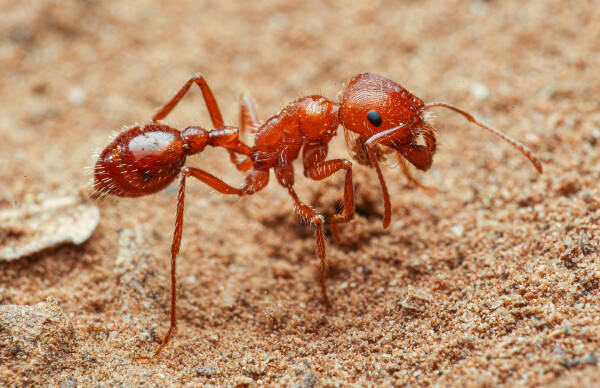
1. Maricopa bearded ant (the venom is twelve times stronger than that of bees)
Among the top ten poisonous ants, the Maricopa bearded ant is the most poisonous. This ant is found in desert areas of America and is often mistaken for the common red ant. However, don't be fooled by their appearance as they are more dangerous than regular ants. The LD50 (median lethal dose) of Maricopa bearded ants is only 0.12 mg/kg (body weight). In other words, only 0.12 milligrams of venom can kill an organism weighing 1 kilogram. Typically, it only takes 12 stings to kill an animal weighing 2 kilograms. The Maricopa bearded ant is more venomous than all known species of bees, bumblebees, and other ants.
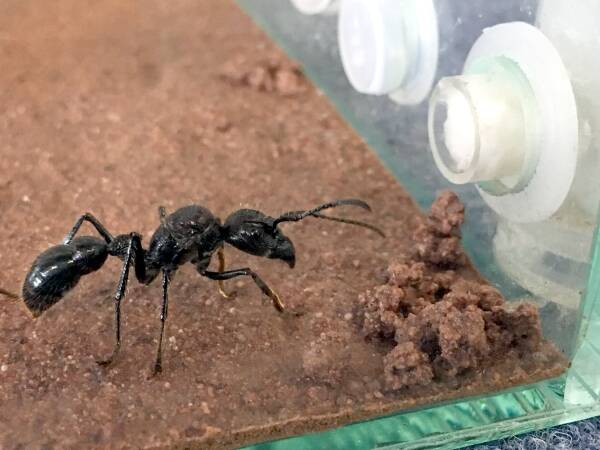
2. Bullet ants (top ten most poisonous animals in the world)
While bullet ants may not be the most venomous ants in the world, they are known to have one of the most painful bites. Bullet ants are often listed as one of the "top ten most poisonous animals in the world" spread online. Justin, a well-known American entomologist, conducted a risky personal experience in order to compare the sensations after being stung by different insects. He voluntarily allowed himself to be stung by more than 150 insects, including bullet ants. He ranked the bullet ant's bite first in the "Schmidt Pain Index" ranking he later compiled, believing that the bullet ant's bite is an extremely painful bite, just like being penetrated by a bullet. The pain from a bullet ant bite can last for 24 hours without diminishing. If bitten multiple times or by multiple bullet ants at the same time, it can even be life-threatening.
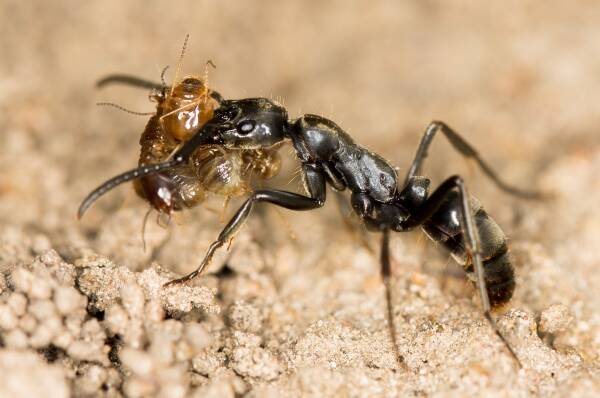
3. Matabele ants (huge in size and highly poisonous)
Matabele ants are also one of the most venomous ants in the world. They belong to the genus Megaantus and live in Africa. Their body color is black, and their tail stingers are so poisonous that even humans cannot tolerate their stings. When stung by matabele ants, the human body may suffer from dizziness, nausea, convulsions and other serious symptoms, which may even be life-threatening. Matabele ant workers are about 15 mm long and they feed on African termites. Once Matabele ants discover a termite nest, they release chemical messages that guide 50 million ants to attack the termite nest at the same time. Any creature that blocks their progress is destined to be killed.
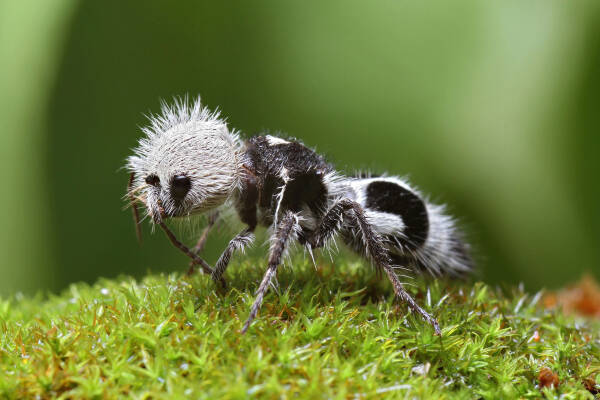
4. Panda Ant (violent personality, containing toxins)
Among the top ten poisonous ants in the world, the panda ant stands out for its cute appearance. Although this ant is relatively large compared to common ants, it is actually only about the size of a peanut. Panda ants are covered in thick black and white fur and look very cute. However, don't be fooled by their appearance. Despite their docile appearance, these ants actually have dangerous venom in their mouths. Like other ant wasps, they have a bad temper. Once stung by a panda ant, people will suffer severe pain. Despite their small size, their venom is enough to kill a cow.
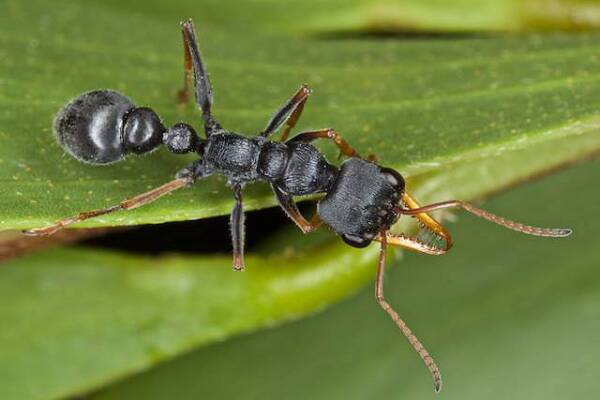
5. Hairy bull ants (strongly aggressive and highly toxic)
Hairy bull ants are the most poisonous species of the bulldog ant family and are commonly known as jack jumping ants. They are extremely aggressive, attacking ants of the same species in different nests and even fighting within the same nest, so large colonies of them are uncommon. Hairy bull ants are solitary hunters with keen eyesight and agile mobility, capable of leaping short distances. They have stingers on their abdomens, and when they inject powerful enzymes and venom into the flies, the flies quickly become incapacitated and die within seconds. How much prey hairy bull ants can carry back to their nests depends on their own carrying abilities.
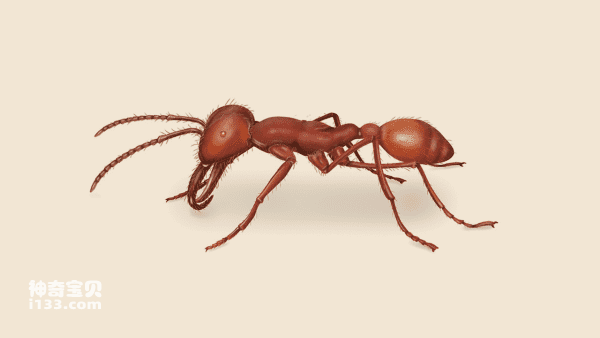
6. Army ants (huge in size, poisonous saliva)
Among the ten most poisonous ants, army ants are a very famous one and are mainly distributed in the Amazon River Basin. They like to live in groups, usually one hundred to two million ants in a group. Army ants are migratory ants that do not have a fixed nest and are accustomed to searching for prey on the move. This ant has a fierce personality and will pay a heavy price when humans invade their territory. The saliva of army ants is toxic and can easily paralyze humans and cause damage to synapses and spinal cords. However, the venom of army ants is not lethal and they do not wait for their prey to die but immediately begin to eat their prey. Within two minutes of being attacked, the prey becomes severely infected and dies.
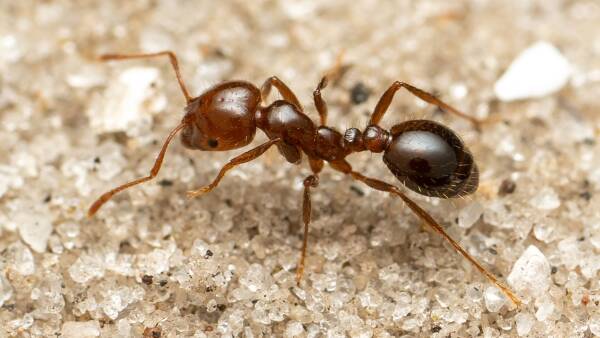
7. Fire ants (severe pain after being bitten, prone to secondary infection)
Fire ants are also one of the top ten most venomous ants. They are called "Fire ants" because their bites cause severe burning pain and burn-like blisters. Fire ants can become extremely aggressive when they invade and disturb their nests. The number of individuals in a mature fire ant nest can reach 200,000 to 500,000. Therefore, intruders often suffer from the stings of large numbers of fire ants, which inject large amounts of acidic venom into their bodies. The attacker immediately suffers devastating injuries and severe pain, and the toxic proteins in the venom often trigger allergic reactions, possibly causing shock and death. If the pus bubble ruptures, it can easily lead to secondary bacterial infection.
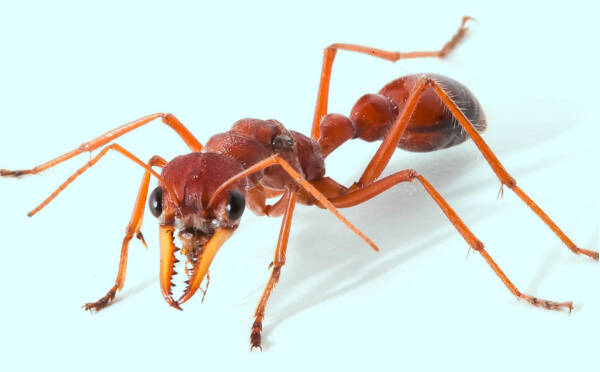
8. Red bulldog ant (one of the largest ant species, containing toxins)
Which ant is the most poisonous? The red bulldog ant is also very famous among bulldog ants. They're called giant bulldog ants or "hoppy joe." The nests of red bulldog ants are built underground. They hunt alone and do not cooperate with other ants when hunting. The relationship between the colonies is very simple. They are extremely aggressive ants that prey on bees and other ants. Unlike most other species of ants, red bulldog ants lack chemical perception, but they do possess extremely sharp eyesight. The red bulldog ant relies on its tail stinger and mandibles as its attack weapons. Its powerful mandibles and venom can cause severe pain. This severe pain lasts for one to two days.
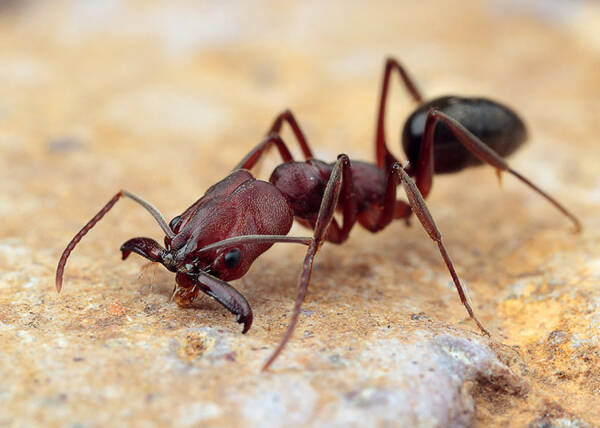
9. Big-toothed ant (the fastest attacking animal on earth)
Big-toothed ants are one of the fastest attacking animals on earth and are extremely lethal among the ant tribe. They can bite their prey in just 0.13 milliseconds, which is 2,300 times faster than a human can blink. The upper and lower jaws of the Macrodon ant are one of the fastest closing predatory organs in nature. The bite force of the two huge teeth can reach 300 times its own body weight.
Once the giant-toothed ants attack, if the enemy still does not leave, they will use their stingers to carry out further attacks. If they encounter an enemy that they cannot resist, the giant-toothed ants will escape the battle by touching the ground with their jaws and bouncing back. Sometimes they can even bounce as far as 1 meter away.
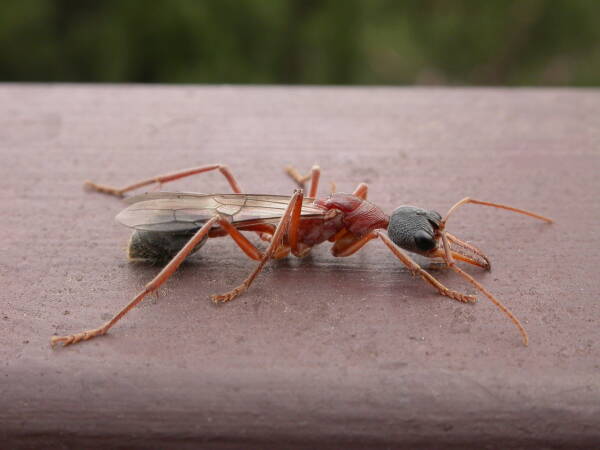
10. Black pear bulldog ant (violent temperament, highly toxic)
With the rise of pet-raising craze, keeping ants has become an increasingly popular trend. In 2023, Shanghai Customs reportedly intercepted an "exotic pet" called the Black Pear Bulldog Ant. This species is mainly found in Australia and other countries and is one of the largest ants in the world. Black pear bulldog ants are ferocious, possessing sharp, serrated jaws and a hard sting.
The venom of the black pear bulldog ant is highly toxic. If stung, people will experience severe pain, fever, nausea, vomiting, dizziness and difficulty breathing. In extreme cases, it may cause allergic reactions, shock or even death. Therefore, caution is required when coming into contact with black pear bulldog ants.
The 10 most poisonous ants in the world are recommended mainly based on ant toxicity/popularity/hazardousness and comprehensive reference to relevant Internet rankings/lists. The data is as of October 16, 2023. If you have any questions, please comment/criticize at the end. Correction.
animal tags: emmet
We created this article in conjunction with AI technology, then made sure it was fact-checked and edited by a Animals Top editor.